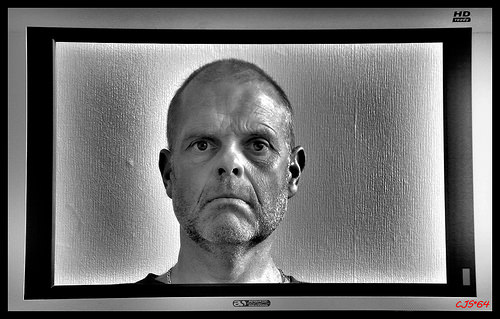Computer says ‘appreciate Mike’
Corporates are a funny bunch. There is a process for everything. Even appreciation.
A couple of friends of mine in different companies recently celebrated significant milestones of service. An HR system notified someone to initiate an order for some official commemorative items and also sent an email to their respective managers to ‘put it on their radar’.
The first – for 5 years of being with the same organisation – earned himself a piece of glassware. The kind that is heavy and feels and looks significant. It also looks like the kind of thing that is still sitting on a shelf of the charity shops with no obvious use to anyone.
My other friend celebrated 15 years at a different company. There was a Friday afternoon presentation by his manager( who incidentally was 11 years old when my friend started at the company!). For such a long tenure, he received – with thanks – a voucher for £100 and a clock.
Being a confirmed nomad and allergic to the long term effects of corporations – I would never tenure anywhere long enough to warrant anything beyond chewing gum – pre-owned chewing gum at that – so I was curious about their experience of being recipients of corporate appreciation by policy.
It’s about the choice
My glassware friend was somewhat at a loss about what to do with this chunk of glass. To make things worse, he Googled the manufacturer of the piece and discovered – much to his disgust – that it cost about $50.
Now my friend lives somewhere $50 goes a fairly long way and to discover he had no choice about the way in which it was spent – when it could have made a real difference to him as cash – left him pretty turned off.
I made the same mistake many people make when we talk about material things – we got through a list of other material things we think could have been a better ‘gift’. Would he have preferred a $50 bottle of whisky, a contribution to a dinner with his partner or a book or who knows what.
As I pursued a relentless list of other things he might have valued more – he put it simply
Mike, being offered a choice is all that I wanted. To have been asked what I wanted or offered the cash
This is when I realised the deep importance of checking in with the person you think you are appreciating – especially when you are demonstrating it with a gift.
Offering them a choice can avoid so much negative stuff. I wonder how my friend’s non chalance about his glassware would be perceived by those responsible for the process of him getting it in the first place. My hunch tells me it would be received as ingratitude.
What thrills me might not thrill you
My other friend – with his unsolicited time piece – agreed wholeheartedly about the issue of choice.
He wouldn’t have chosen cash, but he really would have appreciated a call from the CEO. He said he feels he has contributed so much of his life to this organisation and the people he feels he is supporting have never reached out to say a personal “Thank You”. It has been company All Hands, video broadcasts and other ‘efficient’ channels. He pointed out that:
Even the the Queen of England demonstrates personal gratitude and celebration with centenarians and people who have been of valuable service.
As we spoke more, it turned out that a simple 2 minute phone call demonstrating genuine interest by the CEO of the company would have entirely made his day! It got me wondering what the job of the CEO was. If it wasn’t about connecting with the people whose toil makes the business valuable, then what is it?
Appreciation is double loop learning
One of the new foundations of effective and efficient process work is double loop learning. This is where we formulate a goal, for example
We want to demonstrate our appreciation for long tenures of service
Then we devise a program to reach that goal – for example:
We will give people who have worked for 5 years a piece of crafted glassware and a funky timepiece to people who have served 15 years
Double loop learning in this case suggests that once you have done the program, gather learning about whether the goal should change – not simply the way you are doing it. I heard no evidence that either of these employers had either the interest nor the channels to gather the learning, let alone the intention to apply anything to their original goal.
If either of these employers even remotely thought about Double Loop Learning, they would simply ask how the recipients of these gifts felt about what was offered, how it was offered and what might have helped them feel better appreciated. I am absolutely sure that even a tiny act of genuine inquiry would have yielded that the goal must change along the lines of:
We want to help people who have served our organisation for years to feel appreciated for their long tenure
Can you tell the difference? I hope you can. If not – ask me.
What are your experiences of corporate appreciation?
Did it lift you up and make you feel deeply appreciated or did it leave you feeling meh?
I’d like to hear about either and everything in between. Tweet me, comment or otherwise make your opinions known.
Happy days.











![[NSFW, 18+] Dear James Ellroy, fuck you.](https://mhsutton.me/wp-content/uploads/sites/17/2015/03/3940263511_a3d4d3e454_Gun.jpg)